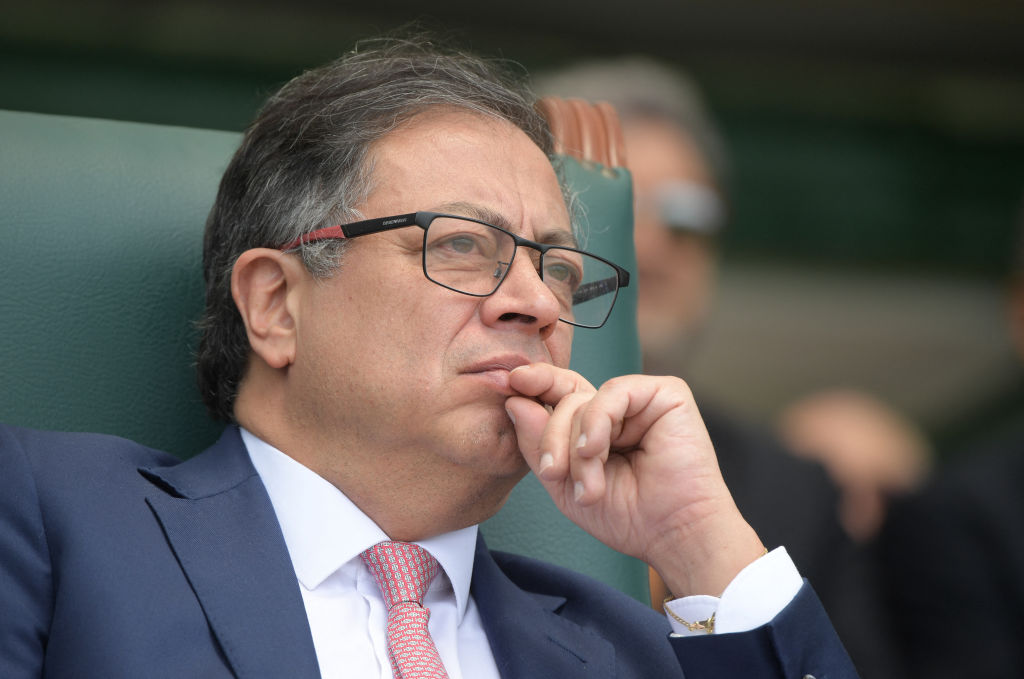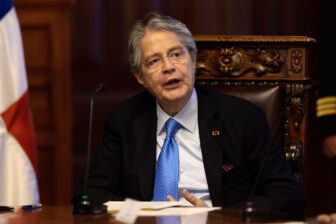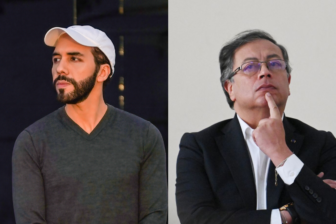BOGOTÁ — Gustavo Petro’s presidency has been in choppy waters for most of 2023, with a key ally leaving in February, a major cabinet reshuffle in April, trouble for his top ally in Congress and, through it all, an approval rating that has sagged into the low 30s. But the latest political scandal, involving Laura Sarabia, Petro’s former chief of staff, and Armando Benedetti, the former ambassador to Venezuela, is clearly the biggest crisis so far in Petro’s presidency, placing his entire agenda at risk.
The case’s details have been bewildering even to Colombians, with a mix of personal intrigue, illegal wiretapping and allegations of drug money in the uppermost reaches of politics. Those curious can get a full accounting elsewhere, and many facts remain unknown. But the bottom line is that Petro’s reputation as a relatively clean figure in Colombian politics is now at risk, along with the cohesion of the broad political coalition he rode to victory in 2022. One of his main opponents in that election has called for him to resign; even former allies have called for Petro to fully explain what happened.
Petro now has a number of choices ahead of him to deal with the crisis, and none of them seems palatable. All of them seem to suggest that the crisis is as bad as the headlines make it out to be and that Petro’s approval and governance will take a significant hit after the scandal. The government will likely survive, but significantly weaker than before the scandal.
Choice number one is to replace key insiders from traditional parties with other, more loyal members of Petro’s Pacto Histórico coalition. This would suggest that the president’s inner circle is shrinking, not expanding. It would also make it much harder for him to advance his already ambitious reform agenda through Congress. This would have implications not only for the Liberal Party and the U Party, which are formally still part of the ruling coalition, but also for other parties firmly on Petro’s side, such as the Green Party where some influential members are already calling for the party to become independent. Under this scenario, Petro would manage to have people next to him whom he trusts, but he would be constricted by a lack of governability. This option is unlikely to happen as it would unnecessarily constrain the government before the local elections taking place on October 29, but also significantly limit governance thereafter.
Choice number two is to make large concessions on the substance of the reform agenda to traditional and centrist parties in exchange for legislative passage of key initiatives, such as the labor reform, the healthcare reform or the pension reform. However, as Petro’s prior negotiation efforts and audio conversations leaked by Benedetti suggest, Petro does not always keep his promises to members of traditional political elites. What assures the traditional parties that this government will fulfill its promises in return for the reforms? This probably suggests that parties will demand painful concessions from the government, largely eliminating the most progressive elements of the government’s reform agenda. Earlier Monday, the lower house suspended legislative action on the government’s reforms as it waits for the dust to settle. Certainly, this is the option that most appeals to markets, but also the least likely.
Choice number three is the most seductive for Petro, but also the riskiest: Take the fight to Twitter and the streets. Petro is famously irritable, unpredictable and prone to spread misleading news, and he has a special sensitivity for public protests. His followers, including Vice President Francia Márquez, are already spreading theories about a soft coup taking place, that there has been an entrapment by the right-wing and traditional parties to damage Petro. Some of them believe this is an effort to convince the president to recuse himself from shortlisting candidates for attorney general, among others. Denial of a scandal of this gravity is not a good strategy for the government, especially considering that events take time to unfold and many explanations are still missing from all those involved.
These seem like excuses to evade the fundamental questions arising from the recordings made by Benedetti: Who financed Petro’s presidential campaign on the Caribbean coast? Who ordered illegal wiretaps of Sarabia’s nanny? What exactly is the influence of drug trafficking organizations in campaign financing in connection to Nicolás Petro, the president’s son? What are the reasons for the U.S. State Department to revoke Benedetti’s visa? How involved is this in the close relationship that Petro has forged with the Maduro administration? How will this affect Ecopetrol President and former Petro campaign manager Ricardo Roa, and the company’s governance?
Opposition leaders have already announced they will file an investigation before the Accusations Commission of the Lower House, the only body with the ability to impeach the president. This suggests that Petro may spend most of the rest of this year, if not the rest of his term, embroiled in legal action and defending himself instead of becoming the historic regional leader that he aspired to be.
—
Guzmán is the director of Colombia Risk Analysis, a political risk consulting firm based in Bogotá.







